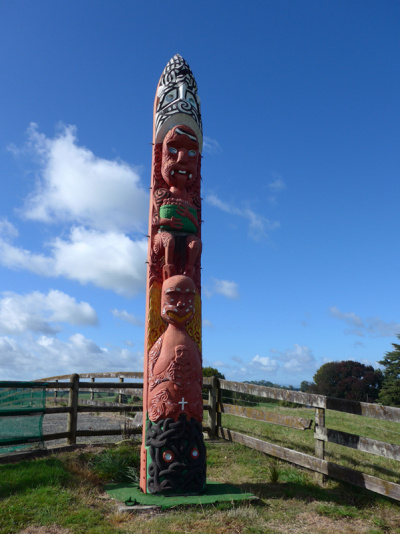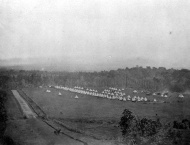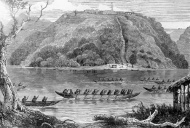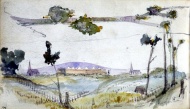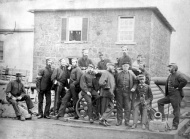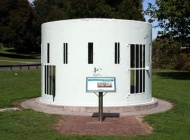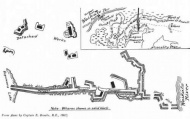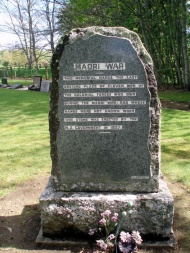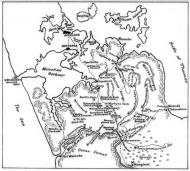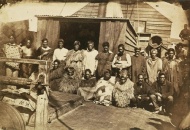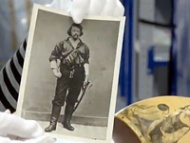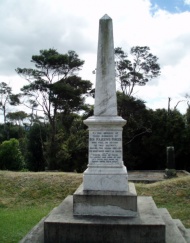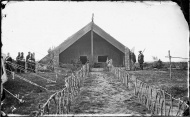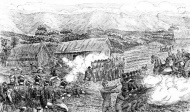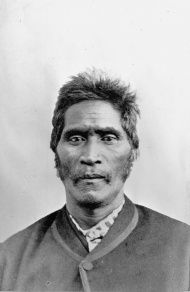Events In History
-
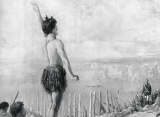 31 March 1864Rewi's last stand?
31 March 1864Rewi's last stand?The last battle of the Waikato War began when the spearhead of a strong British force charged an apparently weak Māori position at Ōrākau, south-east of Te Awamutu. After two frontal assaults failed, the British besieged the pā. Read more...
-
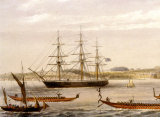 3 November 1863Naval attack on Pūkorokoro, Firth of Thames
3 November 1863Naval attack on Pūkorokoro, Firth of ThamesDuring the first phase of the Waikato War, the colonial government sent HMS Miranda, a screw corvette (steamship), and the gunboat HMS Sandfly to blockade the Firth of Thames. Read more...
Articles
Māori King movement - 1860-94
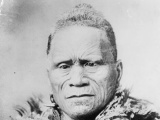
King Tāwhiao's reign was dominated by the Waikato War and the fallout from it.
- Page 1 - Troubled timesKing Tāwhiao's reign was dominated by the Waikato War and the fallout from
War in Waikato
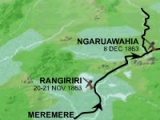
After fighting broke out again in Taranaki in early 1863, Governor George Grey turned his attention to the region he saw as the root of his problems with Māori: Waikato, the heartland of the anti-landselling King Movement. Grey vowed to ‘dig around’ the Kīngitanga until it fell.
-
Page 2 – Invasion plans
Governor Gore Browne demanded that the Kīngitanga submit ‘without reserve’ to the British Queen and began planning an invasion of Waikato shortly before his reassignment to
-
Page 3 – The opening phase
The British invasion of Waikato began on 12 July 1863. The first Māori line of defence was at Meremere. After this was bypassed, Rangiriri and Pāterangi provided a second and
-
Page 4 – Rangiriri
The decisive battle for Waikato was fought at Rangiriri in November 1863.
-
Page 5 – The invasion continues
After the British victory at Rangiriri, Wiremu Tāmihana tried to negotiate peace. He sent his greenstone mere (club) to Cameron as a token of his good faith. But neither Grey
-
Page 6 – The Battle of Ōrākau
James Belich argues that the British victory at Ōrākau was also their ‘cruellest disappointment of the entire war’. Chris Pugsley, on the other hand, sees Ōrākau as the ‘
-
Page 7 – Further information
Books and links relating to the Waikato War
The Treaty in practice
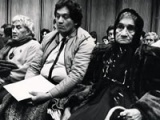
Amalgamating Māori into colonial settler society was a key part of British policy in New Zealand after 1840. Economic and social change, along with land-purchase programmes, were central to this process.
- Page 2 - Slide to warWar raged in the North Island in the mid-19th century. The period from 1860, when conflict broke out in Taranaki, through to about 1872, is commonly called the New Zealand Wars.
Biographies
-
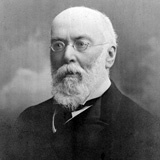 Gorst, John Eldon
Gorst, John Eldon
John Gorst was a Waikato politician who sympathised to some extent with the Kīngitanga and its political aspirations.
Read more... -
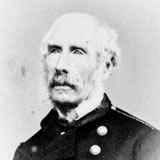 Cameron, Duncan Alexander
Cameron, Duncan Alexander
The historian James Belich believed Cameron was not only the best European commander to serve in New Zealand but ‘among the best of Victorian generals’.
Read more...
Related keywords
- Rangiaowhia
- new zealand wars
- thames
- miranda
- rewi maniapoto
- orakau
- roadside stories
- battle of waiari
- charles heaphy
- victoria cross
- rangiriri
- prisoners of war
- pirongia
- historic places
- tuakau
- auckland city
- fort britomart
- royal navy
- drury
- meremere
- shipping
- ngaruawahia
- NZ Wars memorial
- paterangi
- gustavus von tempsky
- john gorst
- kingitanga
- maori pa
- cambridge
- leamington
- maps
- art
- duncan cameron
- tukaroto potatau matutaera tawhiao
- koheroa
- george grey
- wiremu tamihana tarapipipi te waharoa
- tainui
- maori leaders
- ngati haua
- treaty of waitangi
- maori land
- land confiscation
-
Main image: Rangiaowhia burned whare memorial

